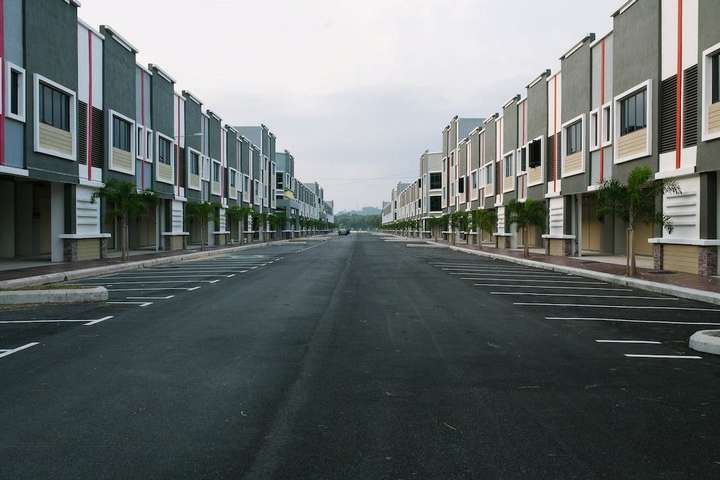Are you curious about what’s changing in the corporate housing industry in 2023? Several exciting trends are emerging that are transforming how companies approach employee housing. These trends are driven by the needs and expectations of the modern-day workforce looking for more flexibility and sustainability.

Technology integration is also a crucial aspect of the industry, making processes more efficient and guest experiences more seamless. With health and safety concerns rising, accommodation providers are implementing new protocols to ensure guests feel protected during their stay.
Today, we’ll explore the top five trends reshaping the corporate housing industry in 2023. Let’s have a look:
1. Flexible Housing Options
Due to the booming oil industry, flexible housing options are witnessing heightened demand, specifically in Odessa. Companies are seeking housing solutions that can cater to the diverse needs of their employees.
This demand has led to an increase in alternatives to traditional corporate housing, such as co-living spaces and serviced apartments that offer a more personalized experience. The growing demand for temporary housing for oil and gas workers has also contributed to the popularity of housing solutions like modular homes and workforce housing communities.
The trend toward flexible housing options is expected to skyrocket in 2023, leading to a rise in the need for corporate housing solutions. This trend explains why oilfield housing solutions are becoming popular nowadays. These housing solutions offer modular structures built to meet the varying needs of the oilfield development workforce.
Overall, the popularity of alternatives to traditional corporate housing is increasing, allowing for more personalized and flexible accommodation options for both corporate and oil and gas workers.
2. Technology Integration
Technology has transformed the way the corporate housing industry operates. It’s now easier for travelers to check in and enjoy their stay with the integration of digital check-ins and smart home technology.
Companies are increasingly investing in technology to enhance their operations, improve transparency, and offer better guest experiences. Implementing technology also allows for a more streamlined booking process, which saves time and reduces stress for corporate and individual travelers. By integrating technology, companies can manage properties and communicate with guests more efficiently.
Besides that, advanced technology has allowed for better transparency between hosts and guests, enabling more effective communication, feedback, and support. As technology advances rapidly, we expect to see even more exciting developments that enhance the guest experience and revolutionize the corporate housing industry.
3. Sustainability
The trend toward sustainability is growing rapidly in the corporate housing industry, and it’s not difficult to see why. More and more companies and travelers are becoming environmentally conscious, and as a result, providers are adopting sustainable practices in their operations.
The focus is reducing carbon footprints, using renewable energy sources, and minimizing waste. Some providers are even introducing eco-friendly amenities like reusable water bottles and natural toiletries to reduce plastic waste. By implementing sustainable practices, companies can exhibit their commitment to the environment and attract guests sharing the same values.
Likewise, travelers who prioritize sustainability can enjoy a more guilt-free stay knowing that their host is taking steps to reduce its environmental impact. Overall, the rise of sustainability in the corporate housing industry is a positive trend that benefits everyone involved, and it’s exciting to see more and more providers incorporating eco-friendly practices into their operations.
4. Health and Safety
Ever since the COVID-19 pandemic, health and safety concerns have been at an all-time high. And the corporate housing industry is no exception. Providers have quickly adapted to the new reality by implementing new cleaning and sanitation protocols to ensure the safety of their guests.
Moreover, providers are offering contactless check-ins and check-outs to minimize contact between guests and staff. Guests are also provided with personal protective equipment, such as face masks and hand sanitizer, to ensure their safety during their stay. The industry’s focus on health and safety has also led to the adoption of new technologies, like air purifiers and UV-C light cleaning.
Now that people know of the impact of a pandemic on the world, health and safety will remain a top priority for the corporate housing industry. These new protocols and technologies demonstrate the industry’s commitment to providing travelers with safe accommodation options.
5. Social Responsibility
Corporate housing providers are taking on the challenge of social responsibility with enthusiasm. They recognize the importance of giving back to the communities in which they operate and are partnering with local charities and non-profits to make a difference.
Most importantly, these providers are implementing sustainable and ethical practices to minimize their environmental impact. They are taking meaningful steps toward a better future, from reducing waste to using eco-friendly products. By prioritizing social responsibility, corporate housing providers uphold their duties as corporate citizens and boost their reputation and brand image.
As travelers become more aware of the impact of their choices, it’s becoming increasingly essential for corporate housing providers to prioritize social responsibility.
Conclusion
The corporate housing industry is transforming rapidly, and 2023 is an exciting year for this sector. We’ve discussed various trends above, such as the need for more flexible housing options and the growing importance of sustainability and social responsibility.
As workers and travelers demand more personalized, adaptable, and eco-friendly housing options, providers must keep up by offering innovative solutions. Technology will also play an integral role in streamlining operations and improving the guest experience.

